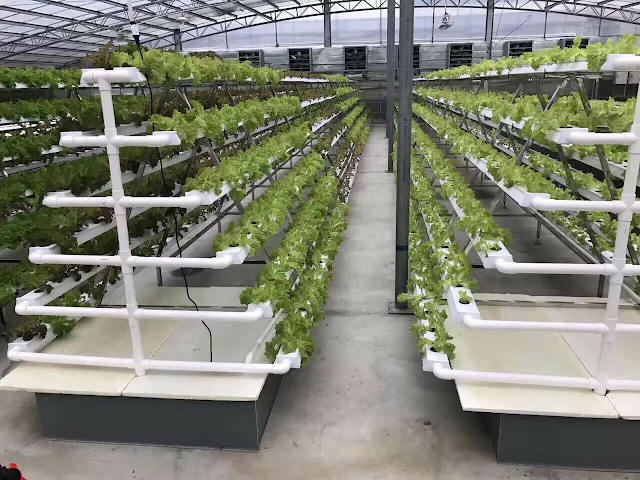The Ultimate Guide to Choosing a Hydroponics Equipment Supplier

Hydroponics, the method of growing plants without soil, has gained significant popularity in recent years due to its efficiency and sustainability. As more individuals and businesses venture into hydroponic farming, the importance of choosing the right hydroponics equipment supplier Central Coast becomes paramount. In this comprehensive guide, we will delve into the essential factors to consider when selecting a supplier, ensuring that you make informed decisions for your hydroponics venture.
Section 1: Understanding Your Hydroponics Needs
Before embarking on the journey of selecting a hydroponics equipment supplier, it's crucial to have a clear understanding of your specific needs.
Each system has its own requirements and benefits, and understanding the nuances of these systems is essential in determining the most suitable equipment for your operation.
Factors such as the type of crop you intend to grow, the scale of your hydroponic operation, and environmental conditions play pivotal roles in defining your equipment requirements.
It is important to consider the size and space available for your hydroponic setup, as well as the specific environmental conditions of your location. Understanding these variables will help you determine the type and capacity of equipment needed for optimal results.
Section 2: Researching Potential Suppliers
Once you have a clear understanding of your hydroponics needs, the next step is to research potential suppliers. The internet is a valuable resource for finding reputable hydroponics equipment supplier Central Coast. There are various online research tools and platforms that can aid in the search for suppliers who meet your requirements. Additionally, reading customer reviews and testimonials can provide valuable insights into the reputation and reliability of potential suppliers.
When researching suppliers, it's also important to evaluate industry certifications and accreditations. Suppliers who adhere to industry standards and best practices are more likely to provide high-quality products and services, ensuring that you receive reliable and efficient equipment for your hydroponic endeavours.
Section 3: Assessing Product Quality and Range
The quality and range of products offered by a supplier are critical factors in the decision-making process. Key components of hydroponic systems such as grow lights, nutrient solutions, pumps, and other accessories must be of high quality to ensure optimal growth and yield. When comparing products, it's essential to consider specifications and performance indicators to determine which equipment aligns best with your specific needs.
In addition to quality, ensuring compatibility with your chosen hydroponic system is vital. Different systems may require specific equipment configurations, and a supplier that offers a range of compatible products can simplify the setup process and ensure seamless integration.
Section 4: Pricing and Cost Considerations
While quality is a top priority, pricing and cost considerations also play a significant role in the supplier selection process. Understanding the pricing structures, including upfront costs and ongoing expenses, is crucial for budget planning. It's important to balance quality with budget constraints, ensuring that you receive the best value for your investment.
Furthermore, negotiating favourable terms and seeking out potential discounts can help optimise your procurement process. Many suppliers are open to discussing pricing options, especially for larger-scale or long-term partnerships. Building a transparent and mutually beneficial relationship with your supplier can lead to cost savings and enhanced value for your hydroponic operation.
Section 5: Customer Support and After-Sales Services
The level of customer support and after-sales services offered by a supplier can significantly impact the overall experience of procuring hydroponics equipment. Technical support and troubleshooting assistance are invaluable, especially for those who are new to hydroponic farming. When evaluating suppliers, it's important to inquire about the availability of support services and the responsiveness of the supplier's technical team.
Warranty coverage for equipment purchases is another critical aspect to consider. Understanding the terms and duration of warranties can provide assurance and protection against potential equipment issues. Additionally, examining return policies and satisfaction guarantees can offer peace of mind, knowing that your investment is backed by reliable after-sales services.
Conclusion
In conclusion, choosing the right hydroponics equipment supplier Central Coast is a pivotal step in establishing a successful and sustainable hydroponic operation.
By understanding your specific needs, conducting thorough research, assessing product quality and range, considering pricing and cost factors, and evaluating customer support and after-sales services, you can make well-informed decisions that will contribute to the success of your hydroponic venture.


Comments
Post a Comment